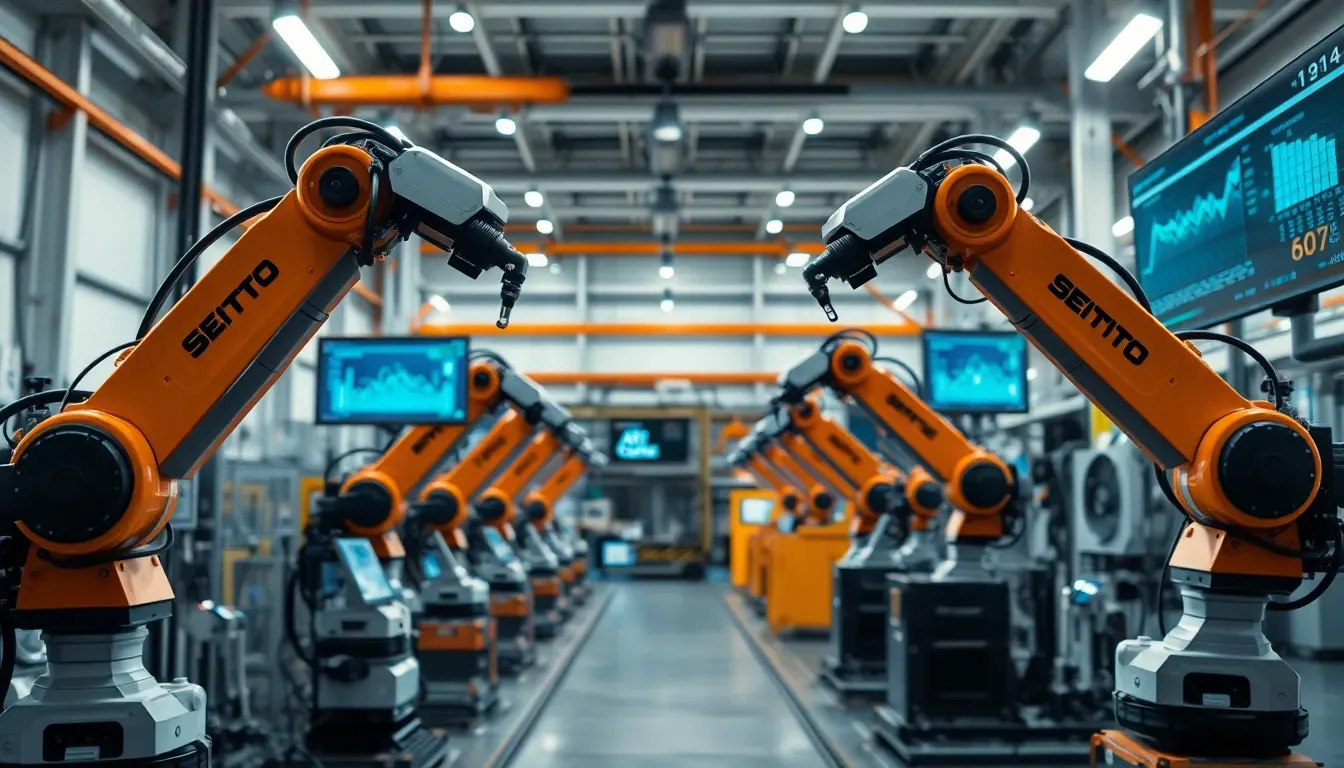Smart Manufacturing & Industry 4.0: The Future of Operational Efficiency
The manufacturing industry is undergoing a seismic shift with the rise of Smart Manufacturing & Industry 4.0. This evolution, driven by technologies such as artificial intelligence (AI), the Internet of Things (IoT), and robotic automation, aims to optimize production, reduce waste, and enhance decision-making across the board.
Table of Contents
- How Automation and AI Enhance Efficiency
- The Power of Data-Driven Production
- The Importance of Supply Chain Connectivity
- Conclusion
- FAQs
1. How Automation and AI Enhance Efficiency
Automation and AI are at the forefront of Smart Manufacturing & Industry 4.0, significantly increasing efficiency and driving down operational costs. By implementing AI algorithms, companies can automate routine tasks, allowing human workers to focus on more complex problem-solving activities. For instance, tasks like inventory management and quality control can be streamlined through automated systems, leading to quicker turnaround times and less human error.
Benefits of Automation
- Cost Reduction: Automation reduces labor costs and minimizes errors, leading to substantial savings.
- Increased Productivity: Machines can operate 24/7 without fatigue, maximizing output.
- Improved Quality: Consistent performance leads to higher product quality and reduced defects.
2. The Power of Data-Driven Production
Data-driven production processes are essential in Smart Manufacturing & Industry 4.0. Real-time data analytics allow manufacturers to monitor production lines closely, facilitating predictive maintenance that minimizes machinery failures. By leveraging data, companies can forecast equipment issues before they happen, saving time and money.
Predictive Maintenance Benefits
- Reduced Downtime: Scheduled maintenance based on data insights prevents unexpected machine failures.
- Enhanced Longevity: Regular monitoring extends the lifecycle of equipment.
- Cost Efficiency: Preventative actions reduce repair costs and unnecessary downtime.
3. The Importance of Supply Chain Connectivity
In today’s interconnected world, supply chain connectivity is critical for optimizing lead times and reducing costs. Smart Manufacturing & Industry 4.0 leverage IoT devices to ensure seamless communication between suppliers, manufacturers, and distributors.
Benefits of Supply Chain Connectivity
- Improved Collaboration: Real-time data sharing fosters better collaboration among all stakeholders.
- Enhanced Responsiveness: Companies can react swiftly to changes in demand, ensuring optimal inventory levels.
- Cost Reduction: Efficient supply chains lead to reduced operational costs through better logistics management.
4. Conclusion
Smart Manufacturing & Industry 4.0 represent a paradigm shift in the manufacturing industry. By embracing automation, data-driven approaches, and enhanced supply chain connectivity, companies can significantly optimize production, reduce waste, and improve operational efficiency. The future is bright for those willing to innovate and adapt in this rapidly changing landscape.
5. FAQs
What is Smart Manufacturing?
Smart manufacturing refers to the integration of advanced technologies, such as IoT and AI, into manufacturing processes to enhance operational efficiency.
How can AI reduce waste in manufacturing?
AI can minimize waste by optimizing production schedules, improving quality control, and enabling predictive maintenance to avoid costly machinery failures.
What role does IoT play in Industry 4.0?
IoT devices facilitate real-time data collection and communication across the supply chain, enabling smarter decision-making and improved operational efficiency.

Leave a Reply